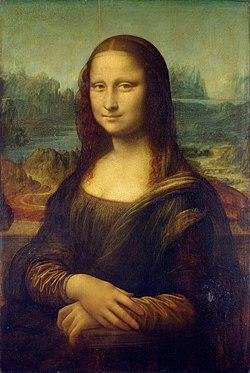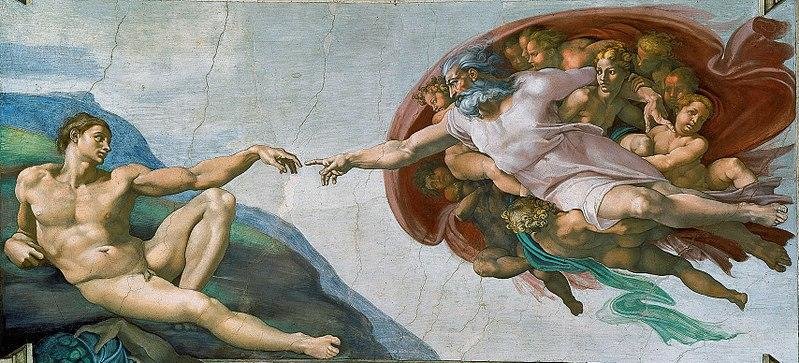Leonardo Da Vinci

Leonardo was a famous European artist due to the popularity of his artworks. However, Monalisa remains the most popular work among his paintings. In this image, the woman is portrayed as a pyramid.
Her head forms the sharp tip of the pyramid while her closed arms represent the base. The folded arms imply that she is a composed woman. The smile on the woman’s face is used to portray her beauty and openness (Byrne 1).
The first character that captures the attention of the viewer is the lady’s smile which is sandwiched by her dark clothing and long hair. Leonardo used the technique of sfumato (shadow and light) to add glossy texture on her hair.
The same technique was applied to hutch the smile on the lady’s face by focusing on the edges of her mouth and eyes.
Monalissa by Leonardo da Vinci
The landscape in the background seems to be in a consistent state. There are many characters in the background such as a river, valleys and vegetation.
The light is flowing from a raised source because it only highlights on the area above the lady’s arms. The same light is used to tell us more about the environment The extreme end of the image which represent the distance between the lady and the landscape is lighter (Meshberger and Rich 1).
The colors used in the image are of low intensity and they are partially integrated in the background. Shadows and light have been combined to create texture on the clothing of the lady.
The image is balanced because of the space occupied by the lady. Additionally, the image can be seen from two perspectives: the top and front views. The position between her head and the arms represent her height while her forehead unveils her thickness.
Michelangelo Buonarroti
The creation of Adam is among the popular paintings by Michelangelo. In this painting, there is a nude man who is laying on a rock. On the other side, there is another living being that is similar to man on the ground.
This other being is clothed, looks stronger and mightier, and is surrounded by young people (Kemp A 9). The nude man looks lonely and judging by the look on his face, he is asking for some help from the other being. The image presents a symbolism of religion and its importance.

Lines have been used to put emphasis on the masculinity of the male character. Adequate light has been distributed in the entire work to show the sort of resemblance that exists between the different characters (Kemp M 1).
The two entities are in different worlds and thus, can only communicate through their hands. The divine being and the aides are housed by a structure that resembles the human heart which means that the reality between the two is not something that can be seen or touched.
The creation of Adam by Michelangelo Buonarroti
The texture of the image is smooth because there are no hard surfaces or materials. The colors used are of low value and they play the role of adding a lively tone to the painting.
The blue color has been used to create distance between the nude man and the landscape. The green vegetation is created by making incomplete brush strokes but all the same, it creates the desired impression.
There is more space that is yet to be utilized and from the appearance, the nude man was the first image to be drafted. Similarly, the divine being might have been brought into the picture for filling the vacuum.
Works Cited
Byrne David. A History of Michelangelo’s Creation of Adam in the Sistine Chapel. 23 Aug 2006. Web.
Meshberger Lynn and Tony Rich. Explaining the Hidden Meaning of Michelangelo’s Creation of Adam. n.d. Web.
Kemp, Amelia. “Smile, Please.” The Guardian. 19 Oct. 2004. Web.
Kemp, Martin. Leonardo da Vinci: The Marvelous Works of Nature and Man. New York: Oxford University Press, Print. 2006.